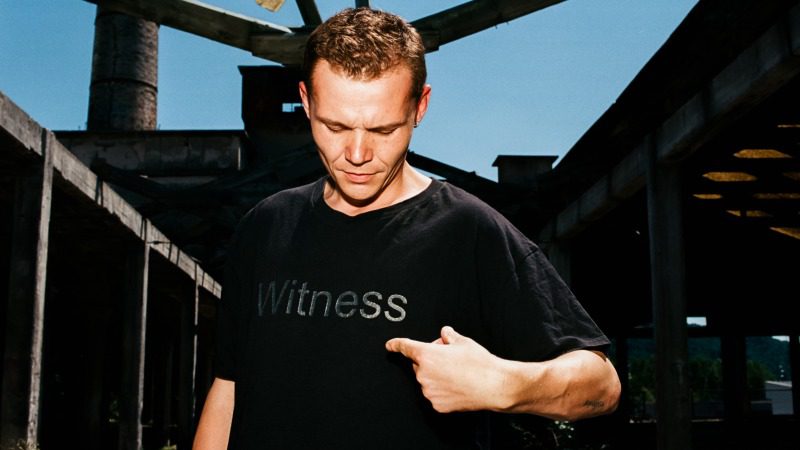The record isn’t minimalistic per se, but Westerman made a concerted effort to not “overwork” the music, hence the shorter span of time he allowed himself to make it. “I wanted to capture this moment in amber and not really mess with that too much,” he explains. A Jackal’s Wedding is a portrait of Westerman’s five-week residence at the Greek island of Hydra, a ferry ride away from the sprawling city of Athens, a place he called home for a couple of years (he is now based in New York). “When the light’s turning in Greece, there’s this oversaturated effect, this ultra-brilliance,” he adds. With his latest album, he wanted to reflect the natural beauty that surrounded him.
[embedded content]
Eager to escape London’s dour environs, Westerman moved to Greece. Back in his hometown, he felt spiritually adrift, aimless amid its morose backdrops and pewter hues. “I found myself sleepwalking around a lot of the time and not noticing what I was doing, and that’s pretty bad if you’re trying to write songs, if you’re not noticing anything,” he says. “Greece just felt so different, almost in every single way. I wasn’t touring at the time, and I had come out of a relationship, so I just figured, well, I don’t have any reason to not do this.”
A spontaneous decision, like an international move, went hand-in-hand with what he describes as a spontaneous creative process. That’s not to say that A Jackal’s Wedding isn’t a deliberate, deeply considered work, but it harkens back to his decision to not overwork the music, to not overthink matters. A central part of that is allowing the arrangements to develop in real time, something he readily credits to co-producer and mixing engineer Marta Salogni. “Some of my favorite moments on the record were done with no setup,” Westerman says. “It’s difficult to find someone you can do that with. There has to be a lot of trust, and there has to be an understanding and a shared language, which is almost subverbal in some ways. It sounds like I’m gushing, but Marta is brilliant.” Part of that extemporaneity surfaced through the limitations of the studio. Westerman and Salogni made A Jackal’s Wedding at the Old Carpet Factory around the release of An Inbuilt Fault.
A 17th-century mansion repurposed as an arts studio, the Old Carpet Factory played a vital role in the album’s sonic makeup. Salogni treated its various rooms like additional instruments for them to play, placing mics that captured space as much as they created it. “She’s always working,” Westerman says of her. “She’s pretty much devoid of ego, which is extremely important. It’s aspirational. I think it’s a difficult thing to do, but she really puts all of the energy into the project she’s working on. It’s all in service to the music. She doesn’t try to impose herself onto the recordings.” Instead, she’s a conduit for the work at hand.
In terms of how that spontaneity materialized in the songs themselves, Westerman points to two key examples. One of those is “Adriatic,” which opens with a skittish, hard-panning drum machine loop that blooms into a swooning synth-pop banger. Rollicking toms from Mogzawa were a last-minute embellishment that elevated the song to another level. The drummer was in a separate room on the upper level laying down a track for another song, but Sagnoli had an idea to bring her downstairs and have her play acoustic drums atop their digital counterpart to give it some extra heft. “It was kind of amazing for me to see,” Westerman recalls. “With the sort of skeleton idea that I’d had, I would never have thought to do that. That’s how a great creative relationship can happen, right? That’s how things can blossom. There was a small imprint, and then all of a sudden this thing came into Technicolor.”
The second example also happens to be his favorite part of the record. He was fiddling with an acoustic guitar at 3 A.M., and a few beers were coursing through his system. Sagnoli sauntered in, and she suggested that they record the song right then and there. “But it’s not finished,” he told her. “I’ve only got two parts to the song.” She dismissed his doubts, even though he’d thought they were done recording for the day. From sketching out the initial ideas to recording it in the studio, Westerman and Sagnoli had wrapped up the song in under thirty minutes. “I’m normally far too pedantic and want to take too much time working on things on my own,” he says. “I’ve never had that before: being in an environment of writing in real time, and then recording it in real time, and then that actually making the cut.” If anything, then it represents A Jackal’s Wedding’s raison d’etre: an ephemeral moment in time, eternally preserved in amber.
[embedded content]
A Jackal’s Wedding is out November 7 via Partisan Records.
Grant Sharples is a writer, journalist, and critic. His work has also appeared in Interview, Uproxx, Pitchfork, Stereogum, The Ringer, Los Angeles Review of Books, and other publications. He lives in Kansas City.




